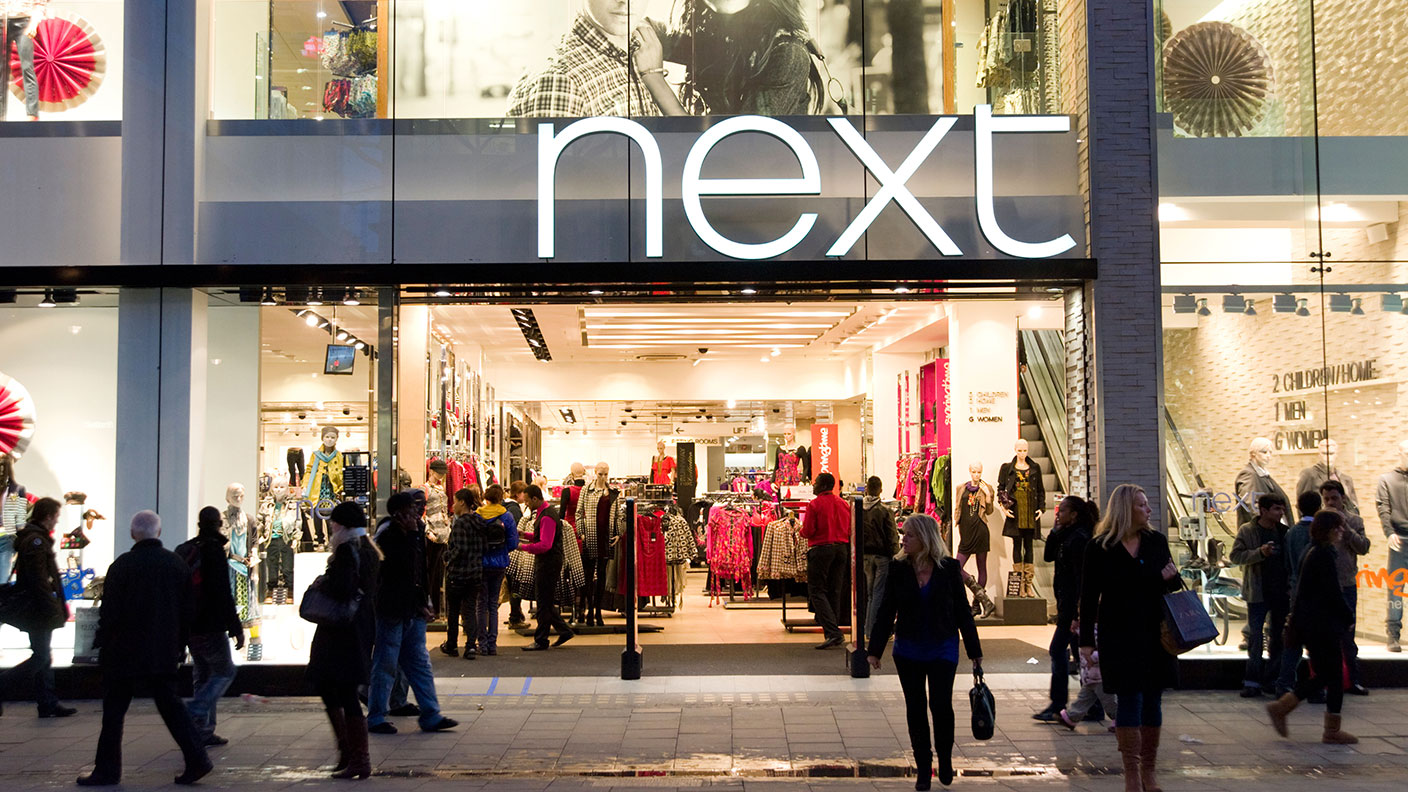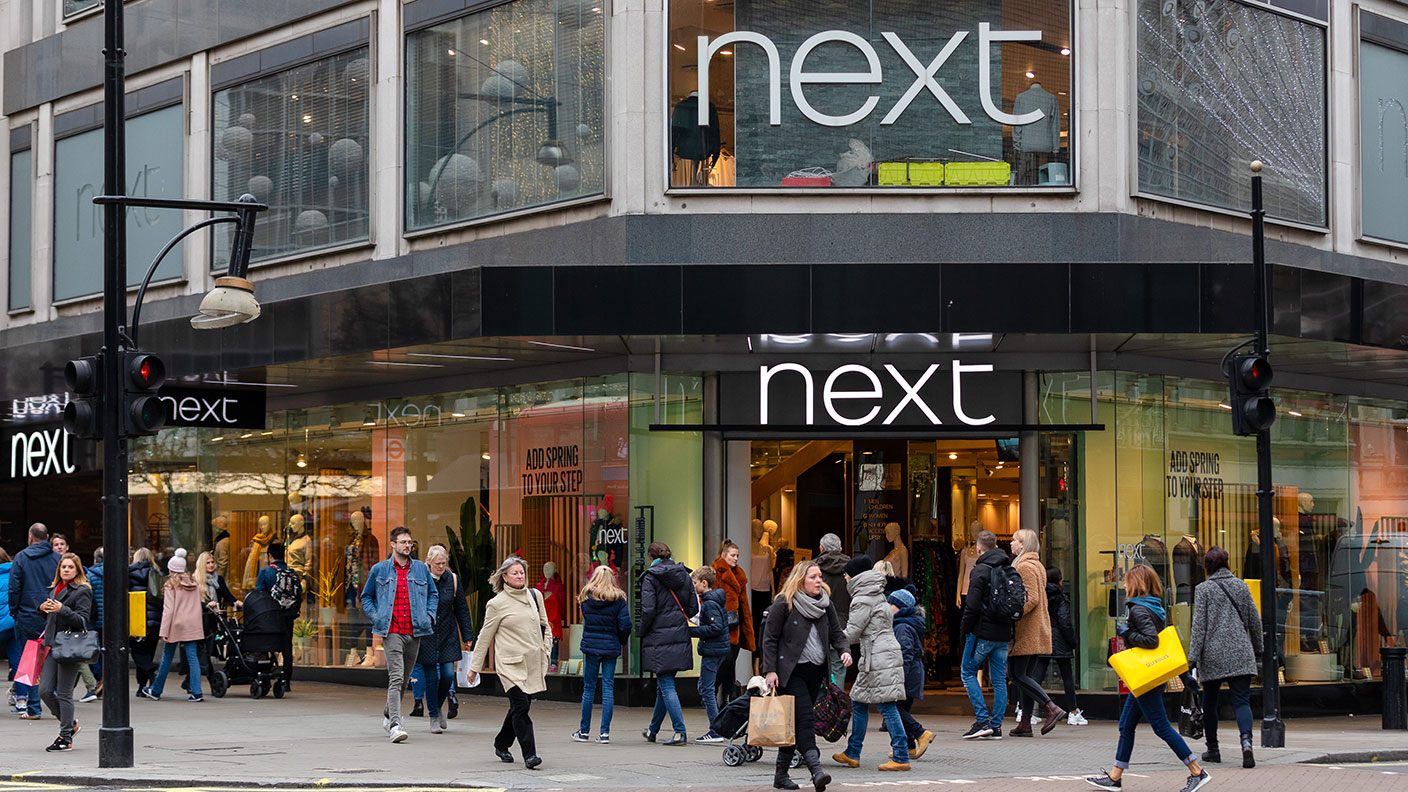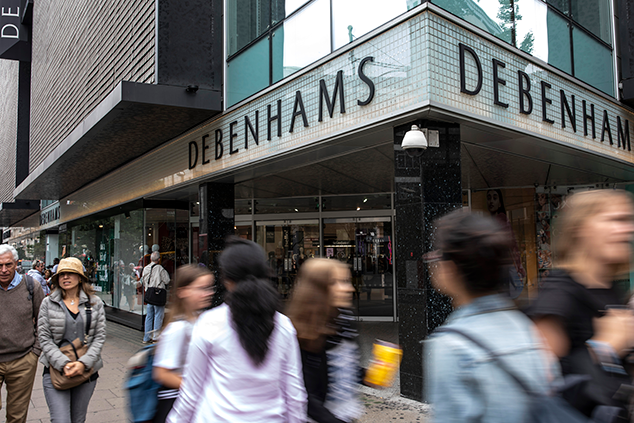Get the latest financial news, insights and expert analysis from our award-winning MoneyWeek team, to help you understand what really matters when it comes to your finances.
You are now subscribed
Your newsletter sign-up was successful
Want to add more newsletters?

Traditional retailers are fighting a losing battle against nimbler online competitors. Ben Judge reports.
The Christmas period was a mixed bag for retailers. Early cheer was provided by Next and John Lewis, which reported upbeat sales. Debenhams and Mothercare, however, reported poor performance, issued profit warnings, and saw their share prices plummet Debenhams by 15% and Mothercare by 27%. Chinese-owned House of Fraser, meanwhile, is writing begging letters to its landlords, asking for rent reductions.
At Debenhams, "shoppers blew an emphatic raspberry at the downmarket, unimaginative seasonal gift selection" which traditionally makes up 10% of festive sales, says Patrick Hosking in The Times. "Novelty hot-water bottles failed to fly off the shelvesthe pullovers for dogs were shunned" and, "inexplicably, the Battle of Britain jigsaw puzzles were not snapped up". The resulting profit warning prompted the share price to slide. "In hindsight", admitted Debenhams' chief executive, Sergio Bucher formerly vice-president of Amazon's European fashion arm "my gifting product line needed to be more premium and differentiated".
Try 6 free issues of MoneyWeek today
Get unparalleled financial insight, analysis and expert opinion you can profit from.

Sign up to Money Morning
Don't miss the latest investment and personal finances news, market analysis, plus money-saving tips with our free twice-daily newsletter
Don't miss the latest investment and personal finances news, market analysis, plus money-saving tips with our free twice-daily newsletter
There are some encouraging signs: online sales were up by 9.9%. But the chain is "still far too dependent on bricks-and-mortar sales and locked into expensive long leases", says Hosking. Quite, says Matthew Vincent in the Financial Times. Bucher may have made his name at Amazon, but that firm "didn't have to right-size' 176 provincial stores to keep its customers and investors coming back".
It's a different story at Next. Full-price sales rose by 1.5% in the eight weeks to Christmas Eve and the company lifted its profit forecast by 1% to £725m, report Mark Vandevelde and Nicholas Megaw in the FT. The share price rose, as did those of rivals Marks & Spencer and AB Foods (which owns Primark), amid hopes that they would outperform too. Yet, says the FT's Vandevelde, "the pessimists of the high street [hedge funds that are shorting retailers] are convinced that, for them at least, Christmas will come soon".
Yes, let's not overdo the cheer, says Nils Pratley in The Guardian. Next's "mildly upbeat" report may have been good for the retail sector's share prices overall, but Next "started early online and is a rule unto itself". Indeed, says Alistair Osborne in The Times. And even Next's flattering sales figures were caused in part by the chilly weather "lifting demand for jumpers and coats", while its sales makeup remains "unbalanced". Online it may be up by 13.6%, but high-street sales were down 6.1%. In the long term, Next still has "too many stores" and 2019 guidance implies a "third year of falling profits".
Micro Focus: gung-ho tech firm mugged by reality
In September 2016, Micro Focus's £6.6bn reverse takeover of Hewlett Packard Enterprise's "non-core" software business was hailed as "an assertion of post-Brexit confidence and a landmark deal for the UK tech sector" by William Turvill in City AM. The deal the latest in a long line by the Berkshire-based company transformed Micro Focus into the biggest software business in Britain.
For the last decade, executive chairman Kevin Loosemore "has pleased shareholders with a model promising profits, not revenue growth", says the FT's Lex column. But the HPE deal "struggles to please on both fronts". Monday's interim results fell short of hopes, with HPE's contribution at "the bottom of the range" of previous guidance. The share price slid by 18%, as the results seemed to confirm "previously voiced concerns that the acquisition was perhaps not a very good idea", says Camilla Canocchi on ThisIsMoney.co.uk.
There was certainly "something a bit gung-ho" about the purchase, says Patrick Hosking in The Times. Loosemore's assertion that the deal was merely "click and repeat" looks "premature at best, if not downright complacent". The Micro Focus boss "has proved doubters wrong before". But this time, the problems could be a warning to investors not just about problems with the integration of the HP deal, but about "diminishing returns from his entire strategy".
City talk
"This year begins much as the last one did for poor old Deutsche Bank," says the FT's Lex column, with weak results, a moribund share price and "much grumbling about management". There will be no help from the European Central Bank, which won't raise rates (thus boosting bank profits). There will be no merger with rival Commerzbank. And don't expect the leadership to improve matters either. CEO John Cryan has "demoralised staff by warning that robots could take their jobs and telling investment bankers they are overpaid".
Last year, roadside repair group AA sacked its CEO and chairman, Bob Mackenzie, for gross misconduct after what it describes as "a sustained and violent assault on another employee" in a hotel bar, captured on CCTV. The drama sent the share price to a record low. Now the AA is "astonished" that Mackenzie is taking the case to an employment tribunal, claiming that his sacking was "mishandled and contravened company procedures", says Iain Withers in The Daily Telegraph. The company says it will "robustly defend any action".
Last week saw "Fatcat Thursday" the day that marks the point at which the average FTSE 100 CEO has taken home as much pay as the average worker earns in a year. The government's attempt to fix this is by making companies publish pay ratios that compare the CEO's salary with that of their average worker. But "shaming bosses into behaving better" won't work, says James Moore in the i newspaper. They "think that the L'Oral ad because I'm worth it' is speaking directly to them". What might work is stronger trade unions. Far from being the bogeymen of "Thatcherite fairytales", unions "foster communication between boardroom and shop floor", driving the productivity gains that fund wage rises.
Get the latest financial news, insights and expert analysis from our award-winning MoneyWeek team, to help you understand what really matters when it comes to your finances.

-
 What do rising oil prices mean for you?
What do rising oil prices mean for you?As conflict in the Middle East sparks an increase in the price of oil, will you see petrol and energy bills go up?
-
 Rachel Reeves's Spring Statement – live analysis and commentary
Rachel Reeves's Spring Statement – live analysis and commentaryChancellor Rachel Reeves will deliver her Spring Statement on 3 March. What can we expect in the speech?
-
 Defeat into victory: the key to Next CEO Simon Wolfson's success
Defeat into victory: the key to Next CEO Simon Wolfson's successOpinion Next CEO Simon Wolfson claims he owes his success to a book on military strategy in World War II. What lessons does it hold, and how did he apply them to Next?
-
 Next’s results stand out against a tough retail backdrop
Next’s results stand out against a tough retail backdropAnalysis FTSE 100 retailer Next is dealing well with the tough conditions on the high street, with rising profits and a plan that's working. Rupert Hargreaves looks at the numbers.
-
 Why Next is the only retailer I’d want to own in my portfolio
Why Next is the only retailer I’d want to own in my portfolioNews The retail sector is brutally competitive. But high street stalwart Next is exploiting and building on its significant competitive advantages, says Rupert Hargreaves.
-
 Next shares soar as sales smash expectations – is the stock a buy?
Next shares soar as sales smash expectations – is the stock a buy?News High street and online retailer Next has reported a big rise in sales and profits. John Stepek looks at its performance and asks if it's worth buying Next shares.
-
 Debenhams is the latest retailer to go down
Debenhams is the latest retailer to go downFeatures The group fell into administration this week, marking another setback for Sports Direct founder Mike Ashley. Matthew Partridge reports.
-
 Drama at Debenhams
Drama at DebenhamsFeatures The outlook at department store group Debenhams is dismal, while Mike Ashley, who owns 30% of it, has been putting his oar in. Matthew Partridge reports.
-
 Debenhams calls in the company doctors
Debenhams calls in the company doctorsFeatures Early this week, the group seemed at death’s door. The prognosis is not quite that bad – but it’s not good news either. Alice Gråhns reports.
-
Three contrarian stocks to buy now
Opinion Professional investor Paul Mumford look for shares that offer solid long-term growth potential, which look undervalued. Here, he picks three such contrarian stocks to buy now.
